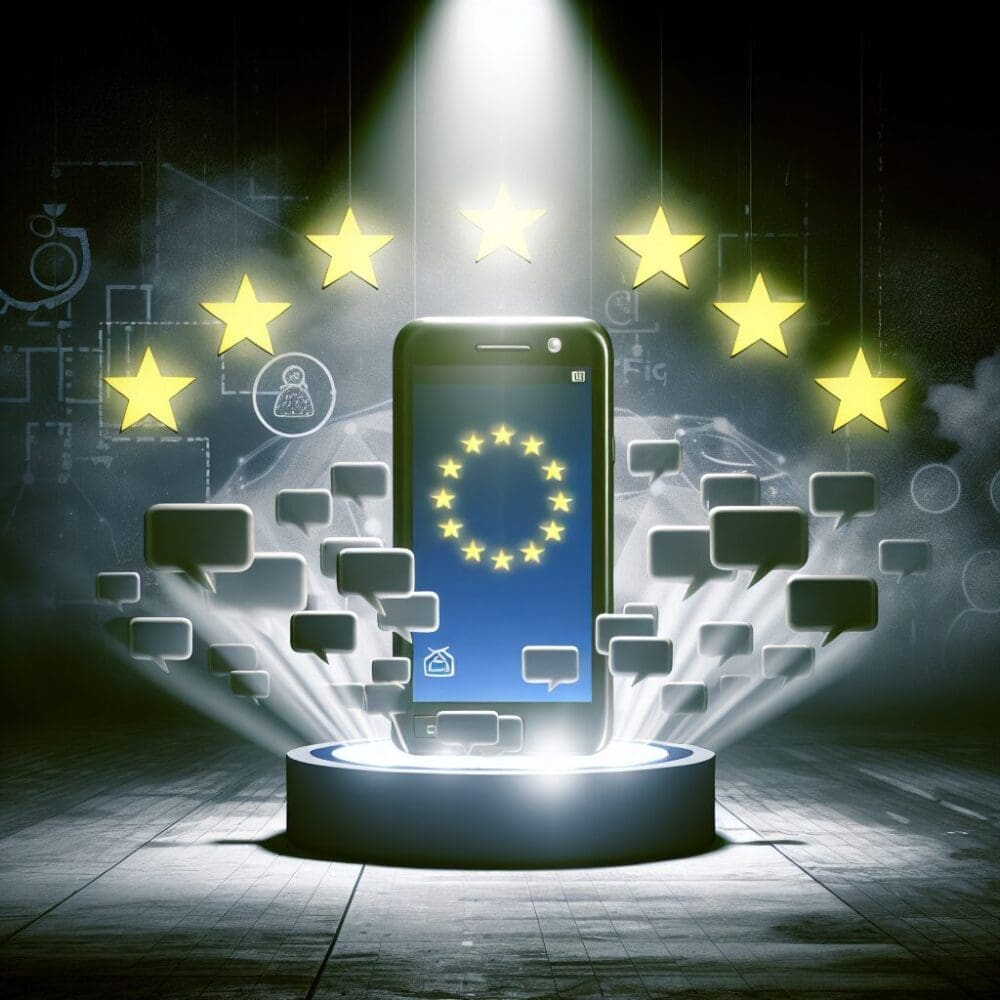“`html
EU Proposal Threatens Privacy by Scanning WhatsApp Chats
The European Union is navigating a fine line between ensuring security and preserving privacy with its latest legislative proposal aimed at regulating encrypted online communications. As discussions unfold, a key focus has emerged: the potential scanning of private messages on platforms like WhatsApp. This proposal raises significant questions and concerns about user privacy, freedom of speech, and the future of encrypted communications across Europe.
Understanding the EU’s Proposal
The EU’s legislative focus has recently shifted towards increased surveillance capabilities in response to threats like terrorism and organized crime. For many, the idea of scanning private messages infringes on basic privacy rights and contradicts the notion of secure, end-to-end encrypted communication.
Why is the Proposal Being Considered?
The underlying motivation behind this move is to enhance public safety by providing law enforcement agencies with the tools necessary to combat illegal activities online. Proponents argue that **end-to-end encryption can shield criminals**, making it challenging for authorities to detect and prevent illicit actions. The proposal is seen as a way to circumvent this obstacle, albeit at the potential cost of individual privacy.
- Enhanced security measures are sought to counter terrorism and crime.
- Legislative intent to prevent misuse of encrypted platforms by criminals.
- Focus on enabling faster and more effective law enforcement responses.
The Implications for WhatsApp and Beyond
WhatsApp, owned by Meta, is known for its robust encryption standards, offering privacy to millions of users worldwide. The EU’s proposal would necessitate changes that could undermine these safeguards. There’s heightened concern about the broader implications for other platforms and apps that also rely on strong **encryption protocols** to protect user data.
Potential repercussions include:
- Compromising the integrity of encrypted messages.
- Increased vulnerability to cyberattacks and data breaches.
- Erosion of user trust in secure communication applications.
Debate Amongst Stakeholders
The proposal has ignited a fierce debate among various stakeholders, including privacy advocates, cybersecurity experts, policymakers, and tech companies. Each group brings its unique perspective to the discussion, intensifying the complexity of reaching a consensus.
Privacy Advocates’ Concerns
Privacy groups are voicing strong opposition to the proposal, emphasizing that surveillance measures could create a **slippery slope** leading to more invasive monitoring practices. They argue that such measures could have a chilling effect on free expression and lead to potential abuses of power.
Tech Companies’ Stance
Major tech companies, including Meta, are resisting the move on the grounds that implementing message-scanning mechanisms would compromise the principle of end-to-end encryption. These companies warn that it could weaken security not just for individual users but also for businesses and governmental communications.
Policy and Legal Challenges
Legislators face the daunting challenge of crafting laws that adequately address security concerns without infringing on fundamental rights. **Balancing national security and individual privacy** is at the core of these discussions, requiring careful consideration of existing human rights frameworks.
The Future of Encrypted Communications in the EU
The outcome of this debate will have significant implications for the future of encrypted communications across the European Union. As the EU strives to create uniform data protection and cybersecurity standards, the decisions made now will likely set precedents for global policy trends.
Potential Scenarios
Several scenarios could unfold depending on the eventual legislative outcome:
- Regulatory Concessions: Compromise solutions could be negotiated to ensure some level of surveillance capability while maintaining stronger safeguards for user privacy.
- Strict Enforcement: The EU could implement stringent measures despite opposition, prompting potential legal challenges and adjusting compliance strategies from affected platforms.
- Abandoning the Proposal: Intense opposition and legal complexities might lead to shelving the proposal altogether, maintaining the status quo on encrypted communications.
Conclusion
The EU’s proposal to scan WhatsApp and other messaging platform chats presents a pivotal moment in the ongoing dialogue about privacy, security, and technology. While the directive aims to bolster security and provide law enforcement with necessary tools, it simultaneously raises grave concerns about user privacy and the sanctity of encrypted communications. The decision-makers must weigh these considerations carefully to forge a path that respects individual rights while addressing legitimate security needs.
The outcome of this debate will not only affect EU policy but also influence global perspectives on privacy and security, making it imperative for stakeholders worldwide to monitor developments closely.
“`



